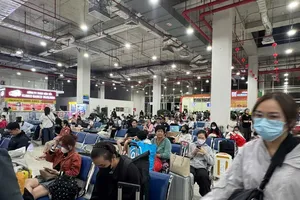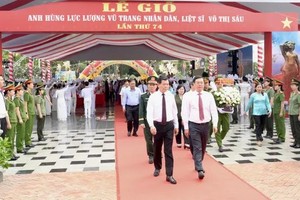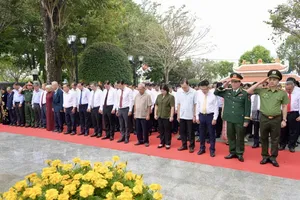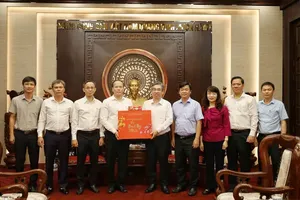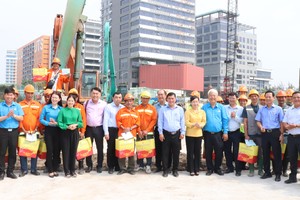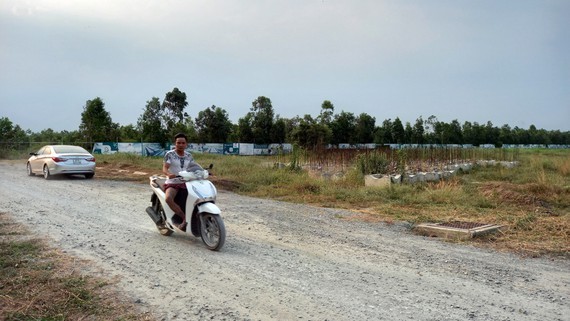
To make the matter worse, various kinds of news related to land planning in HCMC have been released lately like the establishment of Thu Duc City or the building of major routes in the city, forming dangerous property bubbles.
It is worth mentioning that land fevers in Hanoi and HCMC without control do make the situation more serious and may spread to the whole country.
Discussing the hidden person behind these fevers, the Professor said that real estate brokers normally take full advantage of the time when land-related news is released in abundance in order to insert their own fake ones and then easily manipulate the market.
He stressed that the local authorities are to blame for their lack or weakness in management, leading to spontaneous informal land markets appearing in many places. Closing these markets is just a short-term solution. A long-term and more effective one must be proper legal regulations and punishments to better control this sensitive market.
Explaining his recommendation in more detail, Prof. Vo stated that in many nations, a legal corridor is created to avoid negative effects of speculators. They introduce two taxes, one of which for surfing trading and the other on the added land value. There is also a popular method of residential land reserve to regulate the market.
Sadly, in Vietnam, the tax law on real estate is exactly the same as the one over ten years ago although the Ministry of Finance has proposed a change for at least 3 times. What is more, the Government possesses to land reserve for market regulation at all.

Being asked to point out the names of state agencies responsible for land market management, the Professor listed the Ministry of Natural Resources and Environment first (MoNRE), as they are slow in adjusting the Land Law. Despite the 4 times the Government has asked it to amend this Law to facilitate new models of resort properties, to ensure consistency with other laws, and to create favorable conditions for project approval, MoNRE announced that the new law will not appear until 2023. This is an obstacle in land management tasks.
Another ministry to be mentioned by Professor Vo is the Ministry of Construction. Since the introduction of the Housing Law in 2015, it has not been able to create an information provision system for real estate, hence the inability to forecast the precise land supply and demand or possible number of land transactions in Vietnam.
Thirdly, he shared that the ward-level land management is extremely inefficient. Some state officials even take part in illegal actions, and thus are not active in identifying and punishing wrongdoers. District- and province-level leaders are also blamed as land use right transfers are under the control of land administration offices. It is illogical to say that these state officers are not aware or able to monitor those transfers.
Finally, Professor Dang Hung Vo suggested that to stop the current land fevers, state agencies must immediately suspend the conversion of agricultural land to residential one when the planning is not yet approved. In addition, the press must publish precise land planning information. The State Bank is expected to direct commercial banks to temporarily halter credit for real estate businesses to prevent the explosion of current property bubbles.
Simultaneously, the local authorities must base on Decree No.148/2020/ND-CP on amending and supplementing a number of decrees detailing the implementation of the Land Law to form a consistent procedure for the approval of real estate investment projects. This will in turn erase the worry among the community about land shortage in the near future.
